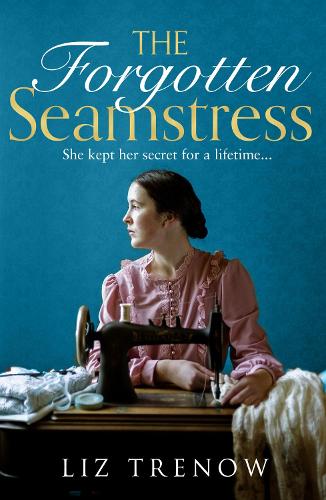
The Forgotten Seamstress
(Paperback)
Publishing Details
The Forgotten Seamstress
By (Author) Liz Trenow
HarperCollins Publishers
AVON, a division of HarperCollins Publishers Ltd
20th January 2014
16th January 2014
United Kingdom
Classifications
General
Fiction
823.92
Physical Properties
Paperback
400
Width 129mm, Height 198mm, Spine 24mm
280g
Description
A stunning book set in the Edwardian era about a seamstress working at Buckingham Palace. Full of drama, betrayal and compelling historical detail, perfect for fans of Lucinda Riley and Tracy Rees.
When Caroline Meadows discovers a beautiful quilt in her mothers attic, she sets out on a journey to discover who made it, and the meaning of the mysterious message embroidered into its lining.
Many years earlier, before the first world war has cast its shadow, Maria, a talented seamstress from the East End of London, is employed to work for the royal family. A young and attractive girl, she soon catches the eye of the Prince of Wales and she in turn is captivated by his glamour and intensity.
But careless talk causes trouble and soon Marias life takes a far darker turn.
Can Caroline piece together a secret history and reveal the truth behind what happened to Maria
Reviews
Praise for Liz Trenow:
Extraordinary, fascinating deeply rooted in history Midweek, Radio 4
Liz Trenow sews together the strands of past and present as delicately as the exquisite stitching on the quilt which forms
the centerpiece of the story.
Lucinda Riley
An assured debut with a page-turning conclusion. Daily Express
An intriguing patchwork of past and present, upstairs
and downstairs, hope and despair. Daisy Goodwin,
A novel about the human spirit Liz Trenow paints with able prose a picture of the prejudices that bind us and the love that sets us free Splendid. Pam Jenoff, author of The Kommandants Girl
This absorbing novel delves into the secrets of wartime silk production and makes them totally fascinating Tremendously atmospheric and convincing in its details, with characters that touch the heart. A book to savour. Kate Furnivall, author of The Russian Concubine
Author Bio
Liz Trenows family have been silk weavers for nearly three hundred years, and she grew up in the house next to the silk mill which provided the inspiration for The Last Telegram, and which still operates today. Instead of becoming a weaver, Liz worked for many years as a journalist for national and regional newspapers, and for BBC radio and television news, and is now a full time writer.
